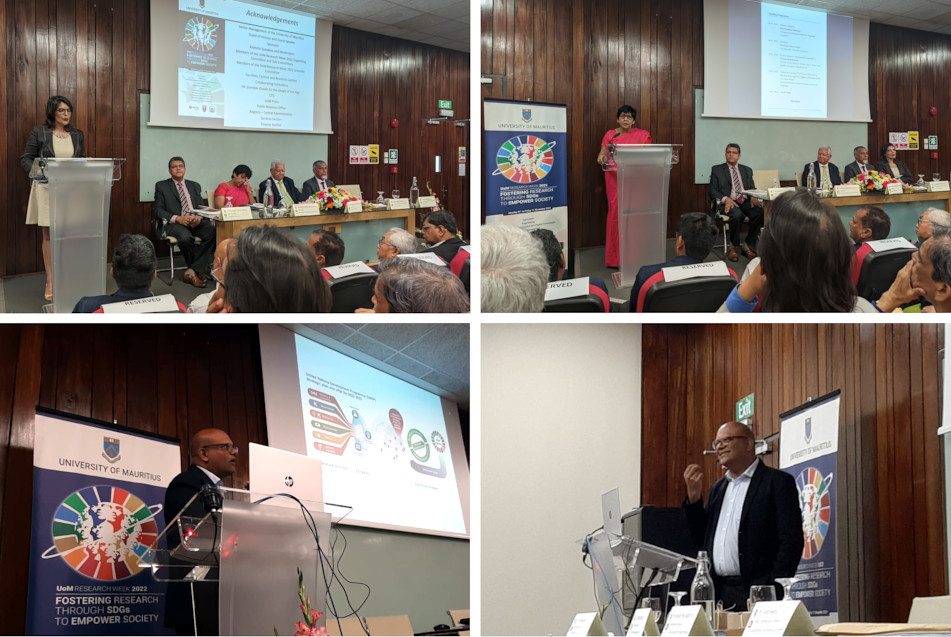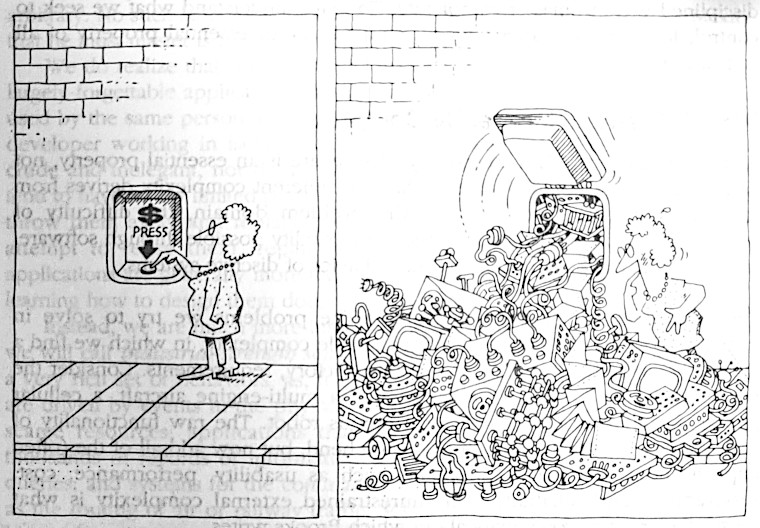
The opening of the University of Mauritius 2022 Research Week was on 7 November and I made a keynote speech on that day. The other keynote speakers were Aruna Radhakeesoon, Sudhamo Lal, Viv Padayatchy and Paramasivum Vyapoory.

The theme of my keynote speech was “SDGs and Innovation for the Educational Technologies sector in Mauritius”. I had been invited by the Centre for Innovative and Lifelong Learning (CILL) of UoM.

I started with the Mauritian context. We want the country to be green (e.g. moving to 60% of renewable energy from the 27% we are today), (fully) inclusive and rich (high-income) in eight years and this requires everyone to chip in.

Problems are immensely complex now and academics are the kind of people with the proper mental aptitudes to comprehend them and provide solutions to them.
But they need to form multidisciplinary teams as any complex problem tend to be multi-faceted. Furthermore, the typical academic (I was one!) tend to do research by creating small toy solutions. These are not scalable in general and are not useful when solutions need to be found for the whole country.
Academics have this wonderful opportunity to think bigger and really contribute to the development of the country.

One of the things that academics can do is to help make sense of the Sustainable Development Goals Framework of the United Nations. These are not only 17 terms but also detailed explanations of each of the 17 SDGs, events being organised, a lot of publications containing best practices and current news.
Academics are the ones who can take this enormous amount of information and condense it in such a way for policy makers to be able to make good decisions. Academics (with their bright students) can be an essential layer in the advisory system of Government (but also for the private sector and civil society).

The United Nations Development Programme (UNDP) has adopted a new Strategic Plan for 2022-2025 which relies on 3 major directions of change: building resilience (following COVID-19), making sure not to leave anyone behind (I did mention that we are killing our Einsteins every year by neglecting poor neighbourhoods…) and this requires structural transformation (especially in education and in governance).
UNDP has also identified 3 major enablers to help in providing solutions: digitalisation, innovation and development financing. Development financing is very important given that Mauritius is considered to be a (relatively) rich country and that we will need to stop relying on outside money for development (as they can stop coming anytime).

The population is ageing and our workforce is not yet ready for the jobs of the future. We need more and better people(ware). We need to train our young (and not young) people properly. We need to bring back the diaspora and incite foreigners to come. One key element is to have better knowledge transfer mechanisms. Everyone learning should be able to learn from experts in the field and not only in class.

We need people who are good in STEM (Science, Technology, Engineering and Maths). But these hard skills are not enough. To solve complex problems, we need people who are also good in soft skills such as creative thinking, communication, being artistic, etc.
The question is how to do create a critical mass of such people: good in hard skills and soft skills. Good at listening. Good at understanding. Good at sharing. And being artistic enough to know what is really important.

This is where Educational Technologies can help.
Schools were invented when factory workers were needed. Today we need knowledge workers and it makes sense to have personalised learning. I dream of a system where the 1.3 millions of Mauritians and Rodriguans can learn different things at different paces.
Another aspect is lifelong learning. The world is changing fast and people need to constantly adapt. Upskilling and reskilling are part and parcel of our lives today and this is not yet reflected in our education system.
YouTube is competing with academics and the latter need to fight for attention. Learning at the university needs to become more enjoyable for the learner.
And, finally, we need to make sure not to leave anyone behind. The University of Mauritius need to understand that it is a key institution of the country with a formidable mandate: identify and amplify the very best among the population. The university needs to move “outside” its Réduit campus.

And I ended by saying that the contribution of academics counts (a lot). Together, we can build a new version of Mauritius, a better one.
[A few days later, I would read an article on Ancient Greek philosopher Aristotle who believed we should define ourselves less by our work, and more by our leisure activities. As from now, if people ask, I’ll them them I do music and photography…]


